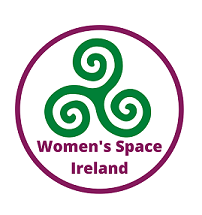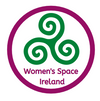Originally published on Broadsheet 18th November 2021
Minister for Further Education Simon Harris has called the Athena Swan Charter “one of the most important initiatives that we have in the higher education sector in Ireland.”
Colette Colfer writes:
The Higher Education Authority (HEA) of Ireland has adopted a charter drawn up by a UK-based charity as one of the key pillars of Ireland’s national strategy for gender equality in higher education.
Engagement with this charter is required of all higher education institutions (HEIs) in the country and the HEA has stated that research funding could be lost by institutions if they do not achieve accreditation under this charter within a set timeframe. Participation in this charter poses a threat to individual and institutional academic freedom across the entire higher education sector.
The Universities Act 1997 Section 12 states that one of the objects of a university is ‘to foster a capacity for critical thinking amongst its students’. The Institutes of Technology Act 2006 Section 7 upholds the right of colleges ‘to preserve and promote the traditional principles of academic freedom in the conduct of its internal and external affairs’. The Athena Swan Ireland Charter, which adopts an uncritical approach to a number of issues, including gender, is potentially in conflict with these Acts as enshrined in Irish legislation.
The Athena Swan Ireland Charter is run by a UK based charity named Advance HE. Since the charter was launched in Ireland in 2015 its remit has stretched from an initial focus of advancing women’s careers in science, technology, engineering, maths, and medicine to now cover all disciplines as well as staff in roles across the sector including those in maintenance.
It also involves consideration of the experiences of trans staff and students and the under-representation of men in certain disciplines. Involvement with the charter has financial implications as well as implications for academic freedom.
The Athena Swan award system is divided into Bronze, Silver and Gold levels. In order to attain an award, participants must submit an application and draw up an action plan in line with Athena Swan Ireland Charter Principles. Completed applications can be up to eighty pages in length. Applications for awards can be made by institutions and by departments within those institutions.
As part of the application, it is required to show how students are included in the objectives and the Athena Swan information pack states that this may include curricula, pedagogy and assessment. The charter therefore potentially impacts not only what is taught in our HEIs but also how it is taught. It also has implications for campus culture more broadly and for campus facilities too.
All of Ireland’s universities and institutes of technologies as well as several colleges participate in the Athena Swan Ireland Charter. The HEA has stated that ‘HEIs stand to lose access to research funding if they do not achieve Athena Swan awards within a set timeframe’. Institutes of Technology which have been granted Technological University Status ‘are required to attain a TU bronze award within three years’.
The Environmental Protection Agency (EPA) requires HEIs to have either applied for, or attained, Athena Swan accreditation in order to be considered for research funding. Science Foundation Ireland (SFI), the Irish Research Council (IRC), and the Health Research Board (HRB) require accreditation as a condition of funding. To give some indication of the amount of money allocated in research funding by these bodies, the EPA Capacities Development Projects can be worth over one million euro. Other funding strands and schemes involve much smaller amounts.
There are currently 87 Athena Swan award holders in Ireland and the November 2021 round of applications is open for submissions between November 2021 and January 2022. Minister for Further and Higher Education in Ireland, Simon Harris, has said:
‘Athena Swan is one of the most important initiatives that we have in the higher education sector in Ireland’.
There are large sums of money involved in Athena Swan. Although the charter does operate in other countries including the UK, Australia, Canada, the US and India, Ireland could be unique in that the charter is funded here at national level. Advance HE declared income of £14,417,000 for the financial year ending 31 July 2020. Although Advance HE state in one of their information packs that they have offices in Ireland, no Irish address can be found online and their website contact information lists just three offices – one in London, one in York, and one in Edinburgh.
The Athena Swan Ireland Charter adopts uncritical stances on certain issues as evidenced by the glossary provided in order to assist applicants fill out submissions. The definition for the term gender, for example, states that it is ‘a spectrum of masculine and feminine characteristics that are socially constructed’. There is no mention of biology and no acknowledgement that the term gender is one which has been contested for decades and means different things to different people.
Other entries and aspects of the glossary are questionable including the example of a microaggression given: ‘where are you from?’ In Ireland, this question is, arguably, one of the mainstays of conversations in the country. Some terms in the glossary have been provided by lobby groups rather than by impartial objective contributors.
Possibly some of the hottest topics in academia today are that of gender identity and the associated controversial classification of ideas as transphobic. Advance HE’s Trans Equality Policy Statement states that transphobic material will not be tolerated but it fails to outline the criteria for the identification of this material.
The definition of transphobia provided by the Transgender Equality Network of Ireland (TENI) in the Athena Swan Ireland Charter glossary is ‘fear, dislike or hatred of people who are trans or are perceived to challenge conventional gender categories or norms’. However, this definition is open to interpretation.
Recent events in the UK as well as in Ireland suggest that the word transphobia can be used to refer to people who believe in the importance of the category of biological sex or who question the wisdom of a conversion therapies bill when the bill applies to the concept of gender identity. Notably, the University of Sussex, where Professor Kathleen Stock worked and recently resigned from after accusations of transphobia, has an Athena Swan Bronze award. Kathleen Stocks’s main argument is that it is important to consider the ramifications of erasing the category of biological sex.
Meanwhile Trinity College Dublin (TCD) is also an Athena Swan Bronze award holder and the TCD Students’ Union is holding a referendum later this month to boycott The Irish Times after the Students’ Union Council accused the newspaper of transphobia following publication of an article which critically examined the Conversion Therapies Bill.
Dublin City University and NUI Galway, whose Students’ Unions have followed plans to boycott the Irish Times, are also Athena Swan Bronze award holders whilst the Dún Laoghaire Institute of Art Design and Technology, whose Students’ Union is also supporting the boycott call, is planning to apply for a Bronze Award in 2022.
Higher education institutions should be places of open inquiry where contested terms, definitions and ideals are opened-up to scrutiny rather than presented as givens. One of the most important texts ever written about education, The Idea of a University by John Henry Newman, was based on a series of lectures delivered by Newman in 1852 in Dublin. Newman believed that the purpose of a university should be intellectual rather than moral or religious and that students should engage with competing ideas in a culture of dialogue and debate.
The aims of gender equality, and of diversity and inclusion, are moral rather than intellectual aims and, as such, they too should be open to critique rather than accepted unquestioningly. These ideals are not uncontested. Although they are classified as anti-discriminatory approaches, there are many different ideas about what an approach to these ideals should entail, and there can be ethical risks in pursuing them.
[1] Some actions in the past which have aimed at achieving equality, diversity and inclusion have been criticised for exacerbating rather than alleviating tensions, for excluding individuals or groups, for neglecting to focus on what is called deep-level diversity which covers differences in attitudes and beliefs. [2] It is not enough for the entire third level educational system of Ireland to pursue moral ideals without open debate on these issues and without consideration of the potential ethical impacts of pursuing them.
The ideas and terms outlined by Athena Swan are being adopted right across the third level sector and evidence of this can be seen in the institutions’ action plans (available online) drawn up by HEIs as part of their application for awards. The Royal College of Surgeons in Ireland, for example, has developed a Gender Identity and Expression Policy as part of their Athena Swan application and this policy states that everyone has a gender identity and that everyone has a sex assigned at birth. Yet these are contested ideas. Many, or perhaps most, people understand sex as a characteristic that is identified on the basis of external genitalia rather than as something ‘assigned’ at birth.
Submissions from HEIs to Athena Swan Ireland often contain plans to provide gender identity and expression training and workshops run by lobby groups. This too has enormous implications for academic freedom in Ireland. The charter principles also require that participants commit to holding others accountable. But what does this mean? It suggests a policing of thought and conversation. Protests at the University of Sussex and the proposed Irish Times boycott could be argued to be in line with this Athena Swan Charter principle.
In summary, the Irish third level education sector has lost its way and its independence. All of our HEIs participate in a charter run by a charity group based in the UK which promulgates ideals of gender equality and of equality, diversity and inclusion with little apparent consideration of the complexity of these ideas or ideals or of the importance of intellectual, or deep-level, diversity, or of debate.
Signing up to this charter is a requirement of all HEIs in the country. Even research funding in Ireland is now directly linked to accreditation with Athena Swan. It’s time to revisit the idea of the university and the still important ideas of John Henry Newman and to reposition Ireland on a path which prioritises cultivation of the intellect above an award system that stifles intellectual and institutional freedom and stultifies open inquiry and debate.
Colette Colfer is a lecturer at Waterford Institute of Technology where she lectures mainly in world religions, social ethics, and critical thinking. She has a background in journalism and has won a number of national radio awards. She is co-producer of Spokes podcast (which on a hiatus at the moment). Colette can be followed on twitter @colettecolfer
[1] Frémeaux, S. (2020) ‘A Common Good Perspective on Diversity’, Business Ethics Quarterly, 30(2), pp.200-228. doi: 10.1017/beq.2019.37.
[2] ibid


